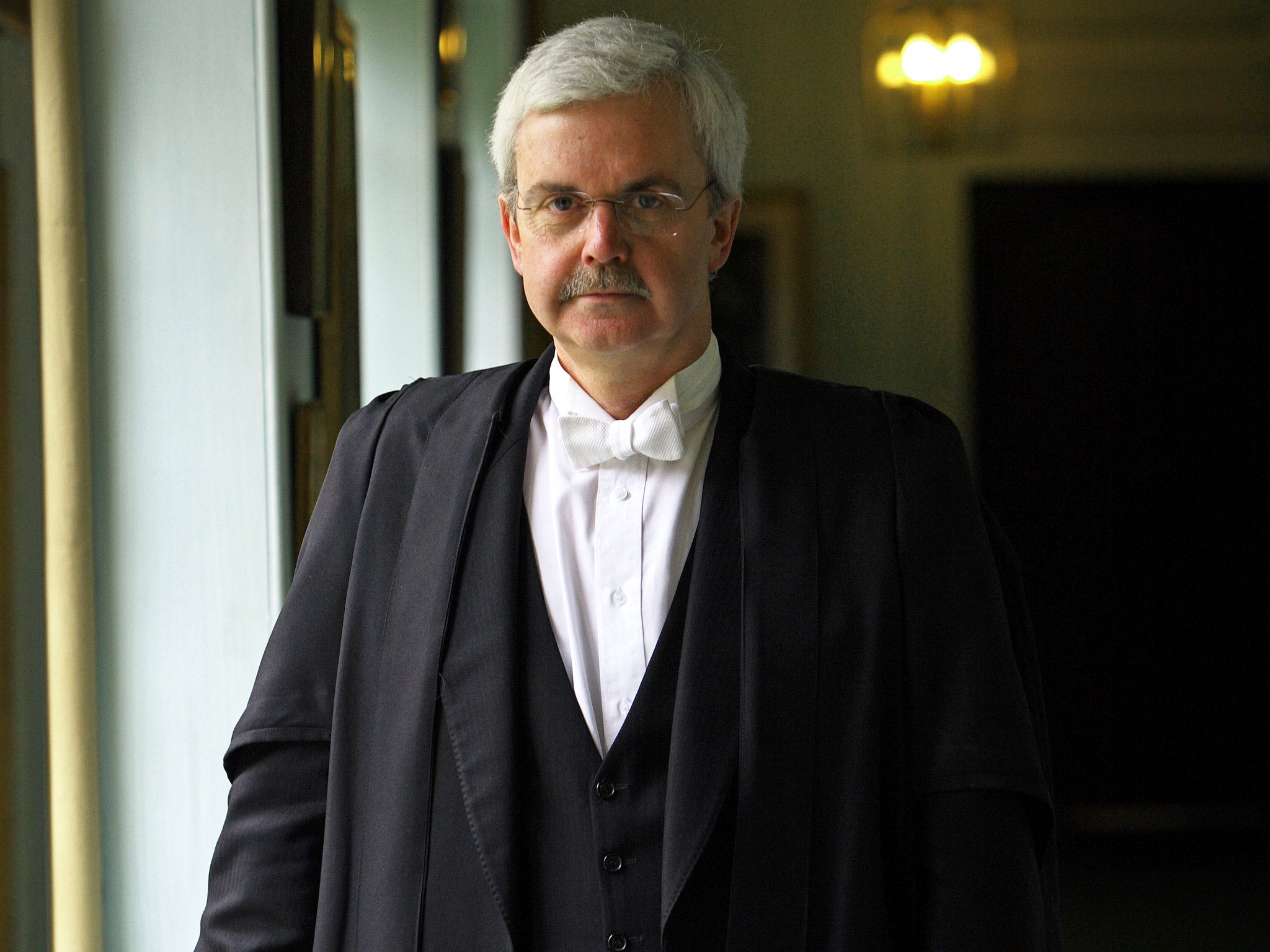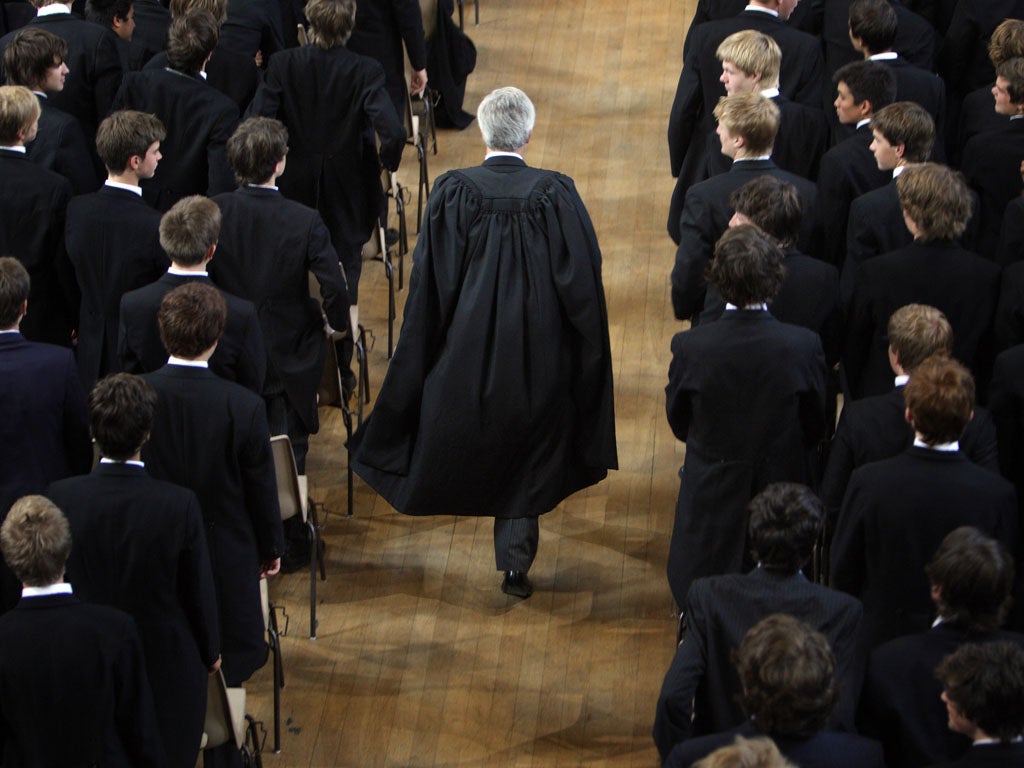Former head of Eton calls for major expansion in number of state boarding schools
The calls come amid concerns that parents can no longer afford the fees of the private sector

Your support helps us to tell the story
From reproductive rights to climate change to Big Tech, The Independent is on the ground when the story is developing. Whether it's investigating the financials of Elon Musk's pro-Trump PAC or producing our latest documentary, 'The A Word', which shines a light on the American women fighting for reproductive rights, we know how important it is to parse out the facts from the messaging.
At such a critical moment in US history, we need reporters on the ground. Your donation allows us to keep sending journalists to speak to both sides of the story.
The Independent is trusted by Americans across the entire political spectrum. And unlike many other quality news outlets, we choose not to lock Americans out of our reporting and analysis with paywalls. We believe quality journalism should be available to everyone, paid for by those who can afford it.
Your support makes all the difference.The former head of Eton is calling for a major expansion in the number of state boarding schools because parents can no longer afford the fees of the private sector.
Tony Little, who left his post at the elitist college this summer and is now president of the Boarding Schools Association, said: “I would really like to see many more state boarding schools because – quite frankly – they need to be created.”
Figures show a slight rise in the UK in the numbers opting for boarding school places in recent years- but this is accounted for by international interest in taking up places.
Mr little said he believed many UK parents were put off by the £35,000 a year fees charged by top private boarding schools – but would welcome the lower £12,000 fees to cover boarding costs charged by the state sector. In addition, those from disadvantaged homes could obtain bursaries or aid from local authorities or charities to cover the costs.

At present there are only 35 state boarding schools in the UK but Mr Little said: “I wouldn’t mind betting that – if there were more provision – that it would be taken up.”
He added: “I’m not talking about a school where only children from very disadvantaged backgrounds go to – although state boarding schools are better for having some children from this background and may have a greater diversity of children in them. We don’t have enough provision at present.”
He described boarding as “a great tradition” which could change children’s lives. Britain’s boarding schools, he argued, were unique. In the United States, the youngest teachers were put in charge of boarding houses (or dormitories as they are called and look to get out – whereas, in Britain, teachers aspired to become head of a boarding house as a career enhancement.
Mr Little, who was speaking at the Headmasters’ and Headmistresses’ Conference – which represents 275 of the UK’s leading independent schools - in St Andrews, Scotland, added: “We do have some quite marvellous boarding provision in this country and it is mirrored in the state sector.”
His comments follow attempts by the last Labour government when Lord Adonis was Schools Minister to increase the number of looked after children offered boarding school places. However, there has been little growth in the state sector provision since.
In a wide-ranging discussion he also called on parents to stop “nagging” their teenage children. “The very worst thing you can do is – of course – just nag them,” he said.
“The most counter-productive phrase you can use is “and another thing”,” he said. He also cautioned both teachers and parents to avoid trying to be seen as “cool” by young people.
Leo Winkley, vice-chairman of the BSA and head of St Peter’s school in York, added: “Be boring, be reliable, be consistent, be predictable. As they go through all the problems of adolescence the last thing they need is change at home.”
Meanwhile, Glenys Stacey, chief executive of the exams regulator Ofqual, told headteachers she doubted whether raising the pay of exam markers would improve the quality of marking. “We know from very extensive research markers don’t do it for the money,” she added.
In addition, she argued that the practice of giving markers just one question on a paper to mark – opposed by headteachers earlier this week – was “just as effiective if not more effective” that the traditional way of giving them a whole paper to mark.
However, she did announce that there would be a wide-ranging review of the appeals and remarking procedure following claims from headteachers that many teenagers were missing out on their first choice of university as a result of the present cumbersome system.
Subscribe to Independent Premium to bookmark this article
Want to bookmark your favourite articles and stories to read or reference later? Start your Independent Premium subscription today.
Join our commenting forum
Join thought-provoking conversations, follow other Independent readers and see their replies
Comments